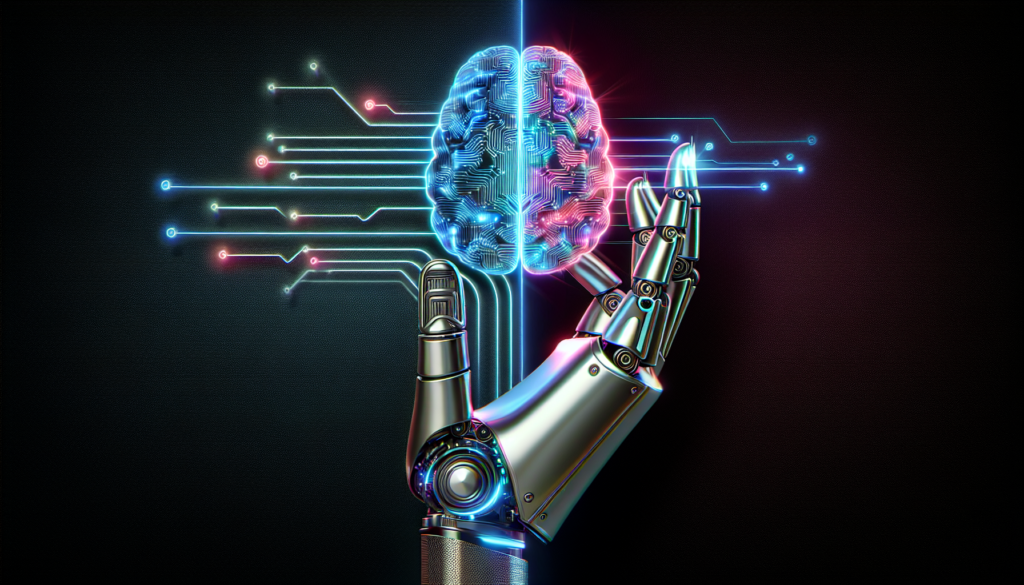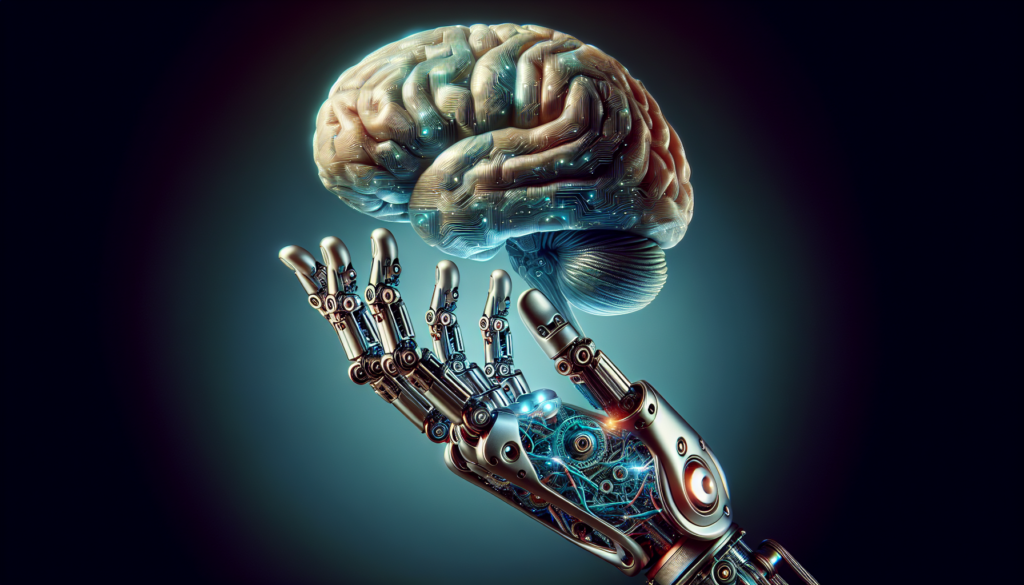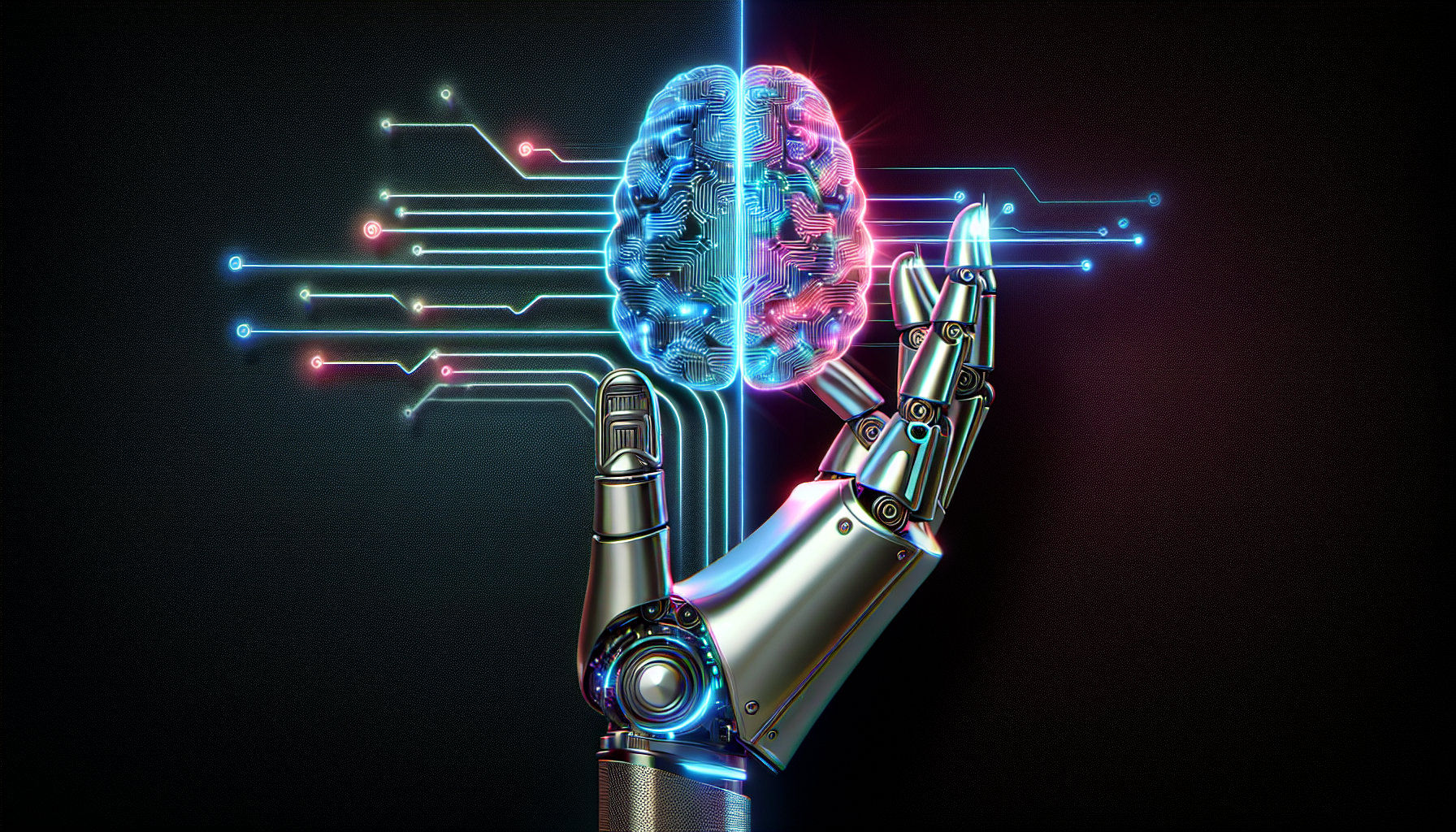In the exciting world of technology, two terms often come up: machine learning and artificial intelligence (AI) engineer. While they may sound similar, there are clear distinctions between these roles. Machine learning engineers focus on developing and implementing algorithms that allow computer systems to learn and improve from data, enabling them to make predictions or decisions. On the other hand, AI engineers specialize in creating intelligent systems that can mimic human intelligence and perform tasks that usually require human cognitive abilities. Despite some overlap, understanding the nuances between these two roles is crucial in navigating the ever-evolving field of technology. Let’s explore the fascinating and distinctive aspects of machine learning and AI engineering in this article.
Definition of Machine Learning Engineer
A Machine Learning Engineer is a skilled professional who focuses on developing and implementing algorithms and models that allow computer systems to learn and perform specific tasks without explicit instructions. They are responsible for creating and refining machine learning systems and ensuring their seamless integration within software applications or platforms.
Scope of Work
The scope of work for a Machine Learning Engineer revolves around leveraging data to create and improve machine learning models. They work closely with data scientists and analysts to gather large datasets that are used to train these models. Machine Learning Engineers are also responsible for selecting appropriate algorithms, tuning hyperparameters, and validating the performance of the models.
Skills and Responsibilities
A Machine Learning Engineer requires a diverse set of skills to excel in their role. Primarily, they must have a strong understanding of statistics, mathematics, and computer science. They should also possess programming skills, particularly in languages such as Python or R, as these languages are commonly used in developing machine learning models.
In addition, Machine Learning Engineers are responsible for testing, debugging, and troubleshooting machine learning systems. They must have excellent problem-solving abilities to identify and resolve any issues that may arise during the development or deployment process.
Education and Training
To become a Machine Learning Engineer, a strong educational background in computer science, mathematics, or a related field is usually required. Many Machine Learning Engineers also hold advanced degrees such as master’s or Ph.D. in these fields.
In terms of training, individuals aspiring to become Machine Learning Engineers can benefit from completing specialized courses or certifications in machine learning and data science. These programs provide a comprehensive understanding of the underlying concepts and practical skills required in this field.
Definition of Artificial Intelligence Engineer
An Artificial Intelligence Engineer is a professional who focuses on designing, developing, and implementing artificial intelligence systems and applications. They work to enable machines or computer systems to exhibit human-like intelligence and behavior, allowing them to understand, learn, and make decisions.
Scope of Work
The scope of work for an Artificial Intelligence Engineer involves creating intelligent systems and algorithms that can analyze data, learn from it, and make informed decisions. They are responsible for developing natural language processing algorithms, computer vision systems, speech recognition systems, and other AI-based systems.
Artificial Intelligence Engineers also work on improving existing AI algorithms and models to enhance their efficiency and accuracy. They collaborate with data scientists, software engineers, and domain experts to gather domain-specific knowledge and incorporate it into the development process.
Skills and Responsibilities
An Artificial Intelligence Engineer must possess a wide range of skills to succeed in their role. They need a strong foundation in machine learning and deep learning techniques, as these are essential for developing AI systems. Additionally, they should have expertise in programming languages such as Python, Java, or C++, as well as experience with AI frameworks and tools like TensorFlow or PyTorch.
Artificial Intelligence Engineers are responsible for designing and implementing complex AI algorithms. They often need to work with big data to train and optimize AI models. Therefore, strong analytical and problem-solving abilities are crucial for identifying patterns and delivering accurate predictions or recommendations.
Education and Training
To become an Artificial Intelligence Engineer, a bachelor’s degree in computer science, engineering, or a related field is typically required. Many professionals in this field also pursue advanced degrees such as master’s or Ph.D. to gain a deeper understanding of AI concepts and practices.
Additionally, individuals interested in becoming Artificial Intelligence Engineers can benefit from specialized training programs, online courses, or certifications that focus on AI technologies and methodologies. These resources provide practical skills and knowledge needed to excel in this rapidly advancing field.

Differences in Job Focus
Machine Learning Engineer Focus
The primary focus of a Machine Learning Engineer is on the development and implementation of machine learning models and algorithms. They work on training these models using large datasets and ensuring their performance and accuracy. Machine Learning Engineers concentrate more on the technical aspects of machine learning.
Artificial Intelligence Engineer Focus
On the other hand, the focus of an Artificial Intelligence Engineer is broader and extends beyond machine learning. They are involved in the development of intelligent systems that can understand, learn, and make decisions. Artificial Intelligence Engineers work on a variety of AI-related tasks, including natural language processing, computer vision, and knowledge representation.
Differences in Skillset
Technical Skills
Both roles require strong technical skills, but the emphasis differs. Machine Learning Engineers need to have a deep understanding of machine learning algorithms, statistical analysis, and programming languages like Python or R. Artificial Intelligence Engineers, in addition to this, also require knowledge of deep learning, natural language processing, and computer vision techniques.
Analytical Skills
Analytical skills are crucial for both roles. Machine Learning Engineers need to analyze complex datasets and identify patterns or trends. They must possess strong statistical analysis skills. Artificial Intelligence Engineers, on the other hand, must possess the ability to analyze and process vast amounts of data for training and optimizing AI models.
Communication Skills
While both roles require effective communication skills, the nature of communication may differ. Machine Learning Engineers often collaborate closely with data scientists and analysts, requiring strong communication and teamwork abilities. Artificial Intelligence Engineers, on the other hand, may work closely with domain experts or stakeholders, necessitating the ability to translate technical concepts into understandable language for non-technical individuals.
Problem-Solving Skills
Both roles require excellent problem-solving skills, but the nature of the problems may vary. Machine Learning Engineers focus on optimizing machine learning models and algorithms, identifying and addressing any performance issues. Artificial Intelligence Engineers tackle complex problems related to developing intelligent systems, such as handling ambiguous or unstructured data and creating algorithms for decision-making.

Differences in Education and Training
Preferred Backgrounds
While both roles typically require a bachelor’s degree in computer science or a related field, the preferred academic backgrounds may vary. Machine Learning Engineers often have a stronger emphasis on mathematics, statistics, or data science. Artificial Intelligence Engineers may have a broader range of preferred backgrounds, including computer science, engineering, or even cognitive science.
Required Courses and Certifications
Individuals aspiring to become Machine Learning Engineers can benefit from completing courses or certifications specifically focused on machine learning and data science. These programs provide a solid foundation in machine learning algorithms, statistical analysis, and programming skills.
Artificial Intelligence Engineers may benefit from similar courses or certifications but should also consider programs or resources that cover additional topics like natural language processing, computer vision, and knowledge representation. These specialized areas are essential for developing intelligent systems and AI applications.
Career Paths
Machine Learning Engineer Career Path
A career as a Machine Learning Engineer can open up various opportunities in sectors such as finance, healthcare, e-commerce, and technology. Within this field, professionals can progress from entry-level positions to more senior roles such as Machine Learning Architect or Senior Data Scientist. With experience, they can also transition into leadership or management positions.
Artificial Intelligence Engineer Career Path
As an Artificial Intelligence Engineer, individuals can pursue careers in sectors such as robotics, healthcare, finance, or autonomous vehicles. They can start as AI Software Engineers or AI Researchers and progress to roles such as AI Team Lead, AI Solutions Architect, or AI Project Manager. With the rapid advancements in AI technology, there are diverse career paths and opportunities available in this field.
Job Outlook and Demand
Machine Learning Engineer Demand
The demand for Machine Learning Engineers has been rapidly growing in recent years. As organizations increasingly rely on data-driven decision-making and automation, the need for professionals who can develop and deploy machine learning models has surged. Machine Learning Engineers are in demand across industries, including finance, healthcare, technology, and manufacturing.
Artificial Intelligence Engineer Demand
Similar to Machine Learning Engineers, the demand for Artificial Intelligence Engineers has also seen significant growth. With the advancements in AI technologies and the potential for impact across multiple sectors, organizations are actively seeking skilled professionals in this field. Artificial Intelligence Engineers are sought after in industries such as robotics, healthcare, finance, and transportation.
Salary Range
Machine Learning Engineer Salary
The salary range for Machine Learning Engineers varies depending on factors such as experience, location, and industry. According to industry reports, the average salary for Machine Learning Engineers in the United States ranges from $100,000 to $150,000 per year. In areas with high demand and cost of living, the salaries can be even higher.
Artificial Intelligence Engineer Salary
Similarly, the salary range for Artificial Intelligence Engineers varies based on several factors. On average, the salary for Artificial Intelligence Engineers in the United States falls between $100,000 and $150,000 per year. However, experienced professionals or those working in high-demand sectors may earn substantially higher salaries.
Collaboration and Teamwork
Collaboration in Machine Learning Engineering
Machine Learning Engineers often work in collaboration with data scientists, analysts, and software engineers. They are integral members of cross-functional teams responsible for developing and implementing machine learning systems. Effective communication, teamwork, and collaboration are essential for successfully integrating machine learning models into software applications or platforms.
Collaboration in Artificial Intelligence Engineering
Artificial Intelligence Engineers collaborate with a diverse range of professionals, including data scientists, domain experts, software engineers, and stakeholders. They work together to develop intelligent systems, ensuring that the AI applications meet the specific requirements and domain knowledge of the organization. Strong collaboration skills are crucial for incorporating different perspectives and expertise into the development process.
Future Trends and Growth
Advancements in Machine Learning
Machine Learning is a rapidly evolving field with ongoing advancements. In the future, we can expect improvements in machine learning architectures, algorithms, and techniques, leading to more efficient and accurate models. Additionally, the integration of machine learning into various domains such as healthcare, cybersecurity, and finance will continue to drive the need for skilled Machine Learning Engineers.
Advancements in Artificial Intelligence
Artificial Intelligence is poised for continued growth and innovation. With advancements in deep learning, natural language processing, and computer vision, we can expect more sophisticated AI systems and applications in the future. Artificial Intelligence Engineers will play a critical role in developing and implementing these advancements, leading to new opportunities and challenges in diverse sectors.
In conclusion, while both Machine Learning Engineers and Artificial Intelligence Engineers play significant roles in the development of intelligent systems, there are subtle differences in their focus, skill sets, education requirements, and career paths. Whether you are interested in developing and improving machine learning models or working on broader AI applications, both fields offer exciting opportunities for individuals passionate about the intersection of technology and intelligence.
